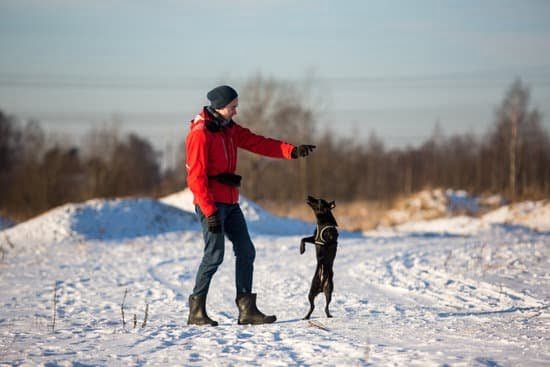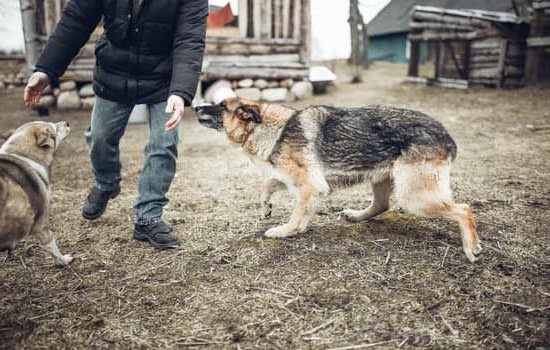Are you wondering how to train your dog Shih Tzu? Shih Tzus are known for their friendly, affectionate nature and beautiful, long coat. However, like all dogs, they require proper training and socialization to become well-behaved companions. In this article, we will explore the specific characteristics of the Shih Tzu breed and provide valuable insights on how to effectively train them.
The Shih Tzu breed originated in China and is known for being a charming and lively toy dog. They are often referred to as “little lion dogs” due to their majestic appearance. Understanding the unique traits and tendencies of the Shih Tzu breed is crucial when it comes to training them effectively. With the right approach, patience, and consistency, you can help your Shih Tzu develop good manners and become a well-adjusted family member.
Proper training begins with setting the right foundation, using positive reinforcement methods. Training your Shih Tzu in a gentle and encouraging manner will not only help them learn obedience but also strengthen the bond between you and your furry companion. By focusing on building a strong relationship based on trust and respect, you can create a positive learning environment for your Shih Tzu.
Setting the Foundation
When it comes to training your Shih Tzu, positive reinforcement is key. This breed responds well to praise, treats, and rewards, making it the most effective method for teaching new behaviors and commands. Positive reinforcement not only motivates your Shih Tzu to learn but also helps to build a strong bond between you and your furry companion.
One of the best ways to implement positive reinforcement training is by using treats as rewards. When teaching your Shih Tzu a new command, such as “sit” or “stay,” be sure to have small, tasty treats on hand to immediately reward them when they successfully follow the command. This will reinforce the behavior and encourage them to continue following the command in the future.
Consistency is also crucial when using positive reinforcement training with your Shih Tzu. Be sure to always reward good behavior and ignore or redirect unwanted behaviors. By staying consistent with your training methods, your Shih Tzu will quickly understand what is expected of them and be more likely to comply.
| Training Method | Description |
|---|---|
| Positive Reinforcement | This method emphasizes rewarding desired behaviors with treats, praise, or toys to encourage their repetition. |
| Consistency | Staying consistent with training methods and expectations will help your Shih Tzu understand what is required of them. |
Getting Started
Basic obedience training is essential for every dog, including Shih Tzus. The key to successful training is consistency, patience, and positive reinforcement. As a Shih Tzu owner, it’s important to understand the breed’s temperament and adjust the training methods accordingly.
The first step in basic obedience training for Shih Tzus is teaching them fundamental commands such as sit, stay, come, and down. These commands form the foundation of your dog’s training and will help establish good behavior in various situations. Positive reinforcement techniques such as treats, praise, and play are effective ways to motivate your Shih Tzu during training sessions.
Consistency is crucial when teaching basic obedience commands to your Shih Tzu. Set aside regular training sessions each day to practice these commands. Keep the sessions short and engaging to prevent your dog from getting bored or frustrated. Remember that every dog learns at their own pace, so be patient and understanding throughout the training process.
In addition to basic obedience commands, leash walking is another important aspect of basic training for Shih Tzus. Start with short walks in a familiar environment before gradually introducing new places and distractions. Use positive reinforcement to reward your Shih Tzu for walking calmly on the leash and following your lead. With patience and consistent practice, you can help your Shih Tzu become a well-behaved and obedient companion.
| Training Techniques | Importance |
|---|---|
| Positive Reinforcement | Motivates the dog and builds a strong bond between owner and pet |
| Consistency | Establishes clear expectations and helps the dog learn effectively |
| Patience | Allows the dog to learn at their own pace without feeling stressed or anxious |
House Training and Potty Training Tips
House training and potty training are essential aspects of training a Shih Tzu. These small, adorable dogs can be stubborn at times, but with the right approach and consistency, they can be successfully trained to do their business in the appropriate place. Here are some tips on how to train your dog Shih Tzu when it comes to house and potty training:
- Establish a routine: Shih Tzus thrive on routine, so establishing a consistent schedule for their meals, playtime, and bathroom breaks is crucial. Take them outside to their designated potty area first thing in the morning, after meals, before bedtime, and as needed throughout the day.
- Use positive reinforcement: When your Shih Tzu goes potty in the right place, be sure to praise them lavishly and offer a tasty treat as a reward. Positive reinforcement will help them associate going potty outside with good things and encourage them to repeat the behavior.
- Supervise closely: Until your Shih Tzu is fully house trained, it’s important to keep a close eye on them indoors. Watch for signs that they need to go potty (sniffing around, circling) and immediately take them outside if you see these behaviors.
Socialization is also an important aspect of house training for Shih Tzus. Exposing them to different environments, people, and animals helps build their confidence and reduces anxiety that may lead to accidents indoors. By following these tips and being patient and consistent with your training efforts, you can successfully house train your beloved Shih Tzu.
Advanced Tip:
If your Shih Tzu continues to have accidents indoors despite consistent training efforts, consider consulting a professional dog trainer or behaviorist for additional guidance tailored specifically to your dog’s needs.
Socialization
The Importance of Socialization
Proper socialization is essential for a Shih Tzu’s mental well-being and overall behavior. Without adequate socialization, they may become fearful or aggressive towards new people, animals, or situations. This can lead to behavioral issues as they grow older. By exposing your Shih Tzu to a variety of experiences from a young age, you can help them become confident and well-adjusted pets.
How to Socialize Your Shih Tzu
Start socializing your Shih Tzu as early as possible. Introduce them to different people, including children and seniors, as well as other animals. Expose them to different environments such as parks, beaches, and urban areas. Always ensure that these experiences are positive by using treats and praise to reward good behavior. Gradually increase the level of difficulty in social situations as your Shih Tzu becomes more comfortable.
Challenges and Tips
Some challenges you may face when socializing your Shih Tzu include fearfulness or shyness around new people or dogs. If this happens, take it slow and don’t force interactions. Instead, give them time to observe from a distance until they feel more comfortable approaching. Patience is key when it comes to socializing any dog breed, including the sensitive nature of the Shih Tzu.
Addressing Common Behavior Issues
Understanding Common Behavior Issues
When it comes to training your Shih Tzu, it’s important to understand that common behavior issues such as barking, separation anxiety, and more can arise. These issues are not uncommon for the breed, but with patience and consistent training, they can be addressed effectively. Understanding the root cause of these behaviors is key to developing a training plan that will be successful.
Training Methods for Barking
Shih Tzus have a tendency to bark, which can become problematic if not addressed early on. To train your Shih Tzu to control their barking, it’s important to use positive reinforcement techniques. When they are quiet or stop barking on command, be sure to reward them with treats or praise. Additionally, teaching the “speak” and “quiet” commands can help your Shih Tzu understand when it’s appropriate to bark and when it’s time to be quiet.
Dealing With Separation Anxiety
Shih Tzus are known for their loyalty and attachment to their owners, which can lead to separation anxiety when left alone. To address this issue, gradual desensitization is key. Start by leaving your Shih Tzu alone for short periods of time and gradually increase the duration as they become more comfortable with being alone. Providing interactive toys or puzzles can also help keep them occupied while you’re away.
Advanced Training
Teaching your Shih Tzu advanced tricks and commands can be a fun and rewarding experience for both you and your furry friend. Once you have mastered the basic obedience training, it’s time to move on to more advanced training techniques. Here are some tips on how to train your dog Shih Tzu in advanced commands and tricks:
- Build on the Basics: Before you start teaching your Shih Tzu advanced tricks, make sure they have mastered the basic commands such as sit, stay, come, and heel. These commands will serve as the foundation for more complex tricks.
- Use Positive Reinforcement: As with any training, positive reinforcement is key. Use treats, praise, and rewards to encourage your Shih Tzu to perform new tricks and commands.
- Be Patient: Training takes time and patience, so it’s important to be consistent and persistent when teaching your Shih Tzu new tricks. It’s also important to keep training sessions short and engaging to prevent boredom or frustration for your dog.
Once your Shih Tzu has mastered the basics, you can move on to teaching them more advanced tricks such as roll over, play dead, or even agility exercises.
Remember that every dog learns at their own pace, so be patient and understanding throughout the training process. With consistency and positive reinforcement, your Shih Tzu will be performing impressive tricks in no time.
Special Considerations for Shih Tzu Training
In conclusion, training a Shih Tzu can be a rewarding experience for both the dog and owner. Understanding the breed’s specific traits and characteristics is crucial in developing an effective training approach.
Positive reinforcement training has proven to be the most successful method for Shih Tzus, as they respond well to praise and rewards. By setting a solid foundation with basic obedience training, addressing house and potty training, and focusing on socialization from an early age, owners can ensure that their Shih Tzu becomes a well-behaved and well-adjusted companion.
One of the key aspects of Shih Tzu training that cannot be overlooked is special considerations such as grooming, exercise, and mental stimulation. Grooming is not only essential for maintaining the Shih Tzu’s appearance but also for their overall health. Regular brushing, bathing, and visits to the groomer are necessary to keep their coat in proper condition.
In terms of exercise, while Shih Tzus do not require intense physical activity due to their small size, they still need daily walks and playtime to stay healthy and avoid becoming overweight. Mental stimulation through interactive toys, puzzle games, and obedience training sessions is also important to keep them mentally sharp and engaged.
As with any breed, Shih Tzus may exhibit common behavior issues such as excessive barking or separation anxiety. Addressing these issues with patience and consistency is crucial for their overall happiness and well-being. Advanced training can also be beneficial for Shih Tzus, as they are intelligent dogs that enjoy learning new tricks and commands.
With the right approach and dedication from the owner, a well-trained Shih Tzu can be a delightful addition to any household. Remember that “How to train your dog shih tzu” will always require patience but will yield positive results in time.
Frequently Asked Questions
Are Shih Tzus Easy to Train?
Shih Tzus can be a bit stubborn, which can make training a challenge. However, with patience, consistency, and positive reinforcement, they can be trained effectively. It’s important to start training early and use gentle methods.
How Do You Discipline a Shih Tzu?
Discipline should focus on positive reinforcement rather than punishment with a Shih Tzu. This breed doesn’t respond well to harsh discipline or scolding. Instead, use rewards and praise to encourage good behavior and gently redirect when they misbehave.
What Not to Do With a Shih Tzu?
When it comes to a Shih Tzu, it’s important not to neglect their grooming needs. Their long coat requires regular brushing and grooming to prevent mats and tangles. Additionally, you should avoid leaving them alone for long periods of time as they crave companionship. Lastly, avoid rough handling or overexercise due to their small size and delicate nature.

Welcome to the blog! I am a professional dog trainer and have been working with dogs for many years. In this blog, I will be discussing various topics related to dog training, including tips, tricks, and advice. I hope you find this information helpful and informative. Thanks for reading!





